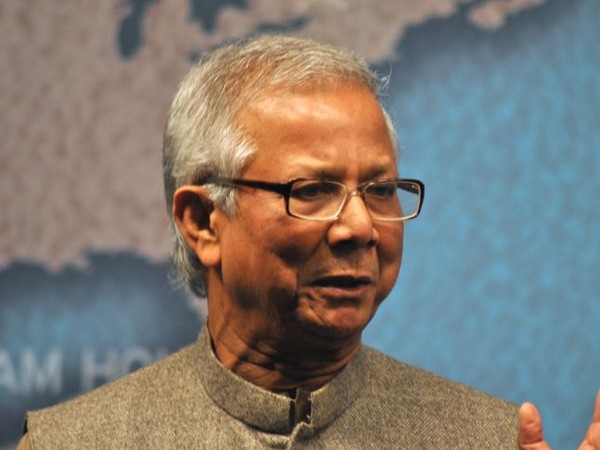Muhammad Yunus Leads New Interim Government Amid Bangladesh Protests
Nobel Peace laureate Muhammad Yunus has returned to Bangladesh to lead an interim government following student protests that ousted Prime Minister Sheikh Hasina. Yunus, who received medical treatment in Paris, was welcomed by supporters and military officials. The new interim government is tasked with organizing elections for a new leadership.

Nobel Peace laureate Muhammad Yunus returned to Bangladesh on Thursday to take the helm of a new interim government. The move followed tumultuous student protests that forced Prime Minister Sheikh Hasina to resign and flee to neighboring India. Yunus, a known critic of Hasina, arrived from Paris after medical treatment, backed by protesters for his leadership role in the interim administration responsible for holding elections.
'The country has the possibility of becoming a very beautiful nation,' the economist told reporters at the airport, where he was welcomed by senior military officers and student leaders. Yunus praised the student protesters for saving the country and emphasized the importance of protecting their hard-won freedom. 'Whatever path our students show us, we will move ahead with that,' he added.
'We had ended those possibilities, now again we have to rise up. To the government officials here and defence chiefs—we are a family, we should move ahead together,' Yunus stated. He is set to be sworn in as chief of a team of advisers at 1430 GMT at the official residence of President Mohammed Shahabuddin.
Hasina's Awami League party will not be part of the interim government after her resignation on Monday, which followed weeks of violence that claimed around 300 lives and injured thousands. In a Facebook post, her son, Sajeeb Wazed Joy, asserted that the party was ready to hold talks with opponents and the interim government despite the current crises.
'I had said my family will no longer be involved in politics, but the way our party leaders and workers are being attacked, we cannot give up,' he said. Meanwhile, opposition leaders, including BNP's Khaleda Zia, have called for calm and an end to violence. Zia, speaking from her hospital bed, appealed for no destruction, revenge, or vengeance.
Yunus, who won the 2006 Nobel Peace Prize for pioneering the fight against poverty with microloans, steps into leadership at a critical time. Hasina's flight to India and the subsequent riots reflect deep-rooted issues. The protests against government job quotas evolved into a broader movement fuelled by economic hardship and political repression. Bangladesh's main opposition party, the BNP, boycotted two national elections under Hasina's rule, only exacerbating tensions. With an economy strained by the COVID-19 pandemic and high inflation, the Hasina government sought a $4.7 billion loan from the International Monetary Fund in a bid to stabilize the situation.
(With inputs from agencies.)










